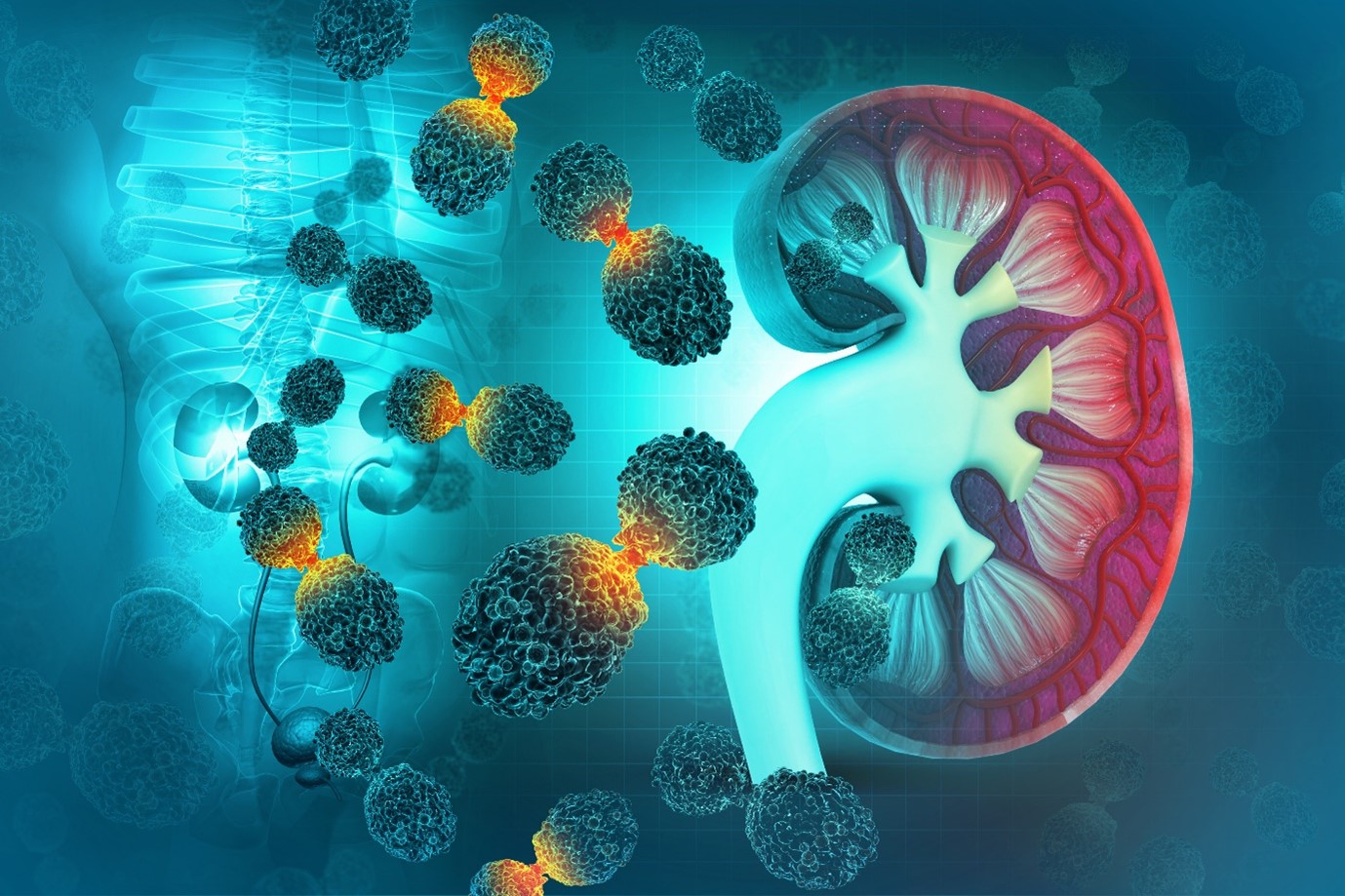What Is Kidney Cancer?
Kidney cancer occurs when cells in the kidney grow uncontrollably and abnormally, forming a mass called a tumor.
These tumors can be
- Malignant (cancerous) and spread to other organs (metastasis)
- Benign (noncancerous), staying localized.
Symptoms usually include
- Blood in urine
- A lump in the kidney area
- Fatigue
- Weight loss
Due to a lack of symptoms, kidney cancer often remains undetected in its early stages.
Who Is at Risk of Kidney Cancer?
Kidney cancer primarily affects people aged 65–74, with men having higher chances than women to develop the disease.
It’s more prevalent in Native American and Black populations.
Risk factors include
- Smoking
- Obesity
- High blood pressure
- Family history
- Certain genetic conditions (like von Hippel-Lindau disease)
- Prolonged dialysis.
What Are the Types and Stages of Kidney Cancer?
The main types of kidney cancer include:
- Renal Cell Carcinoma (RCC): Makes up 85% of cases and typically begins in the tubules of the kidney.
- Transitional Cell Cancer: Found in the renal pelvis or ureters, making up 6-7% of cases.
- Renal Sarcoma: A rare form involving kidney connective tissues.
- Wilms Tumor: Most common in children.
Stages range from I (small, localized tumors) to IV (tumors that have spread to distant organs).
High-grade tumors grow and spread faster than low-grade ones.
How Is Kidney Cancer Diagnosed and Treated?
Diagnosis involves
- Urinalysis
- Blood tests
- Imaging such as CT scans, MRIs, or ultrasounds
- A biopsy may confirm the diagnosis
Treatment depends on the stage and includes:
- Surgery: Removal of partial or complete kidney.
- Ablation: Destroying cancer cells using cold (cryoablation) or heat (radiofrequency ablation).
- Radiation Therapy: Used when surgery isn’t possible.
- Targeted Drug Therapy: Blocks cancer-nurturing proteins and blood vessels.
- Immunotherapy: Boosts the immune system to attack cancer cells.
- Chemotherapy: Rarely used, reserved for advanced cases.
Can Kidney Cancer Be Prevented?
While it’s not entirely preventable, you can lower your risk by avoiding smoking, maintaining a healthy weight, and managing high blood pressure and diabetes.
Early detection is key—seek medical advice if you notice blood in urine, side pain, or unusual fatigue.
Aurum Men’s Health guides you through diagnosis and treatment with personalized care plans. Don’t wait—your health matters. If you have concerns about kidney cancer symptoms, schedule a consultation today.




